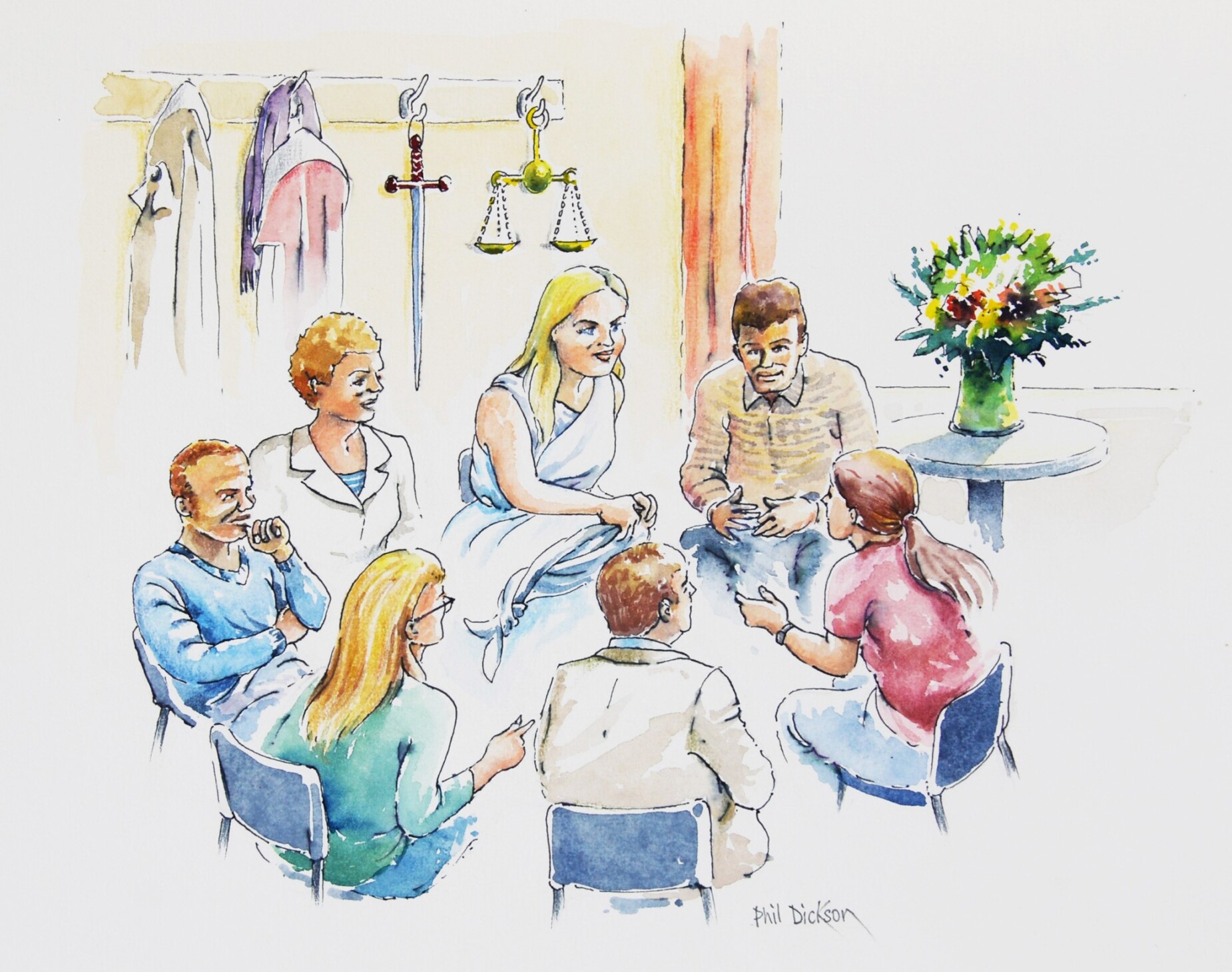About Us
RJS4C Ireland
About The Project
Restorative Justice: Strategies for Change (RJS4C) aims to support the development of restorative justice in Europe.
In ten countries, a core group of four persons – the ‘Core Members’ – are collaborating with domestic policymakers, practitioners, researchers, activists and other interested parties – the ‘Stakeholder Group’ – to co-create national strategies to guide their work.
This website hosts the work of the Irish partners.
project purpose
The purpose of the project is threefold:
- to refocus European criminal justice systems, agencies, policies and practices around restorative principles and processes;
- to share successful strategies used to develop law, regulation, policy, practice and public awareness around restorative justice; and,
- to determine how the Council of Europe Recommendation concerning restorative justice could be used as a vehicle to support this work.
The project involves partners in Albania, Belgium, Czech Republic, Estonia, Italy, the Netherlands, Poland, Portugal, Ireland and Scotland. In each, up to four persons from policy, practice, academia and civil society act as Core Members. RJS4C is coordinated by Dr. Ian Marder (Maynooth University School of Law and Criminology), Gert Jan Slump (Restorative Justice Nederland) and the European Forum for Restorative Justice.

Image credit: Designed by Lindsey Pointer & Illustrated by Phil Dickinson
Core Members and Strategy for Ireland
In June, the Irish Core Members published their first national strategy. This document outlines how the group will seek to develop the use of restorative justice and restorative practices in the Irish criminal justice system. The strategy was published following substantial consultation with the project’s Stakeholder Group, during and subsequent to a symposium at Maynooth University in March 2019 and the circulation of an initial draft of the strategy for feedback.
The strategy has three pillars for the implementation of restorative justice in Ireland:
Accessibility: Safe, high quality restorative justice should be available to all victims and offenders who would benefit from participation. Access should not depend, exclusively and in the absence of other considerations, on where they live in Ireland, their age, the offence in question, or the stage of the criminal justice process. Other affected persons should also be enabled to participate in restorative justice, if victims and offenders so wish.
Knowledge: Restorative justice should be known and understood widely enough and to such an extent that all relevant persons are aware of its potential benefits and risks, and the available services.
Cultural change: All persons working in or in collaboration with the criminal justice system should be trained in restorative practices so that they are confident in using these skills, principles and processes in their day-to-day work. This will help support the development of more responsive, relational, participatory, procedurally-just and reflective organisational cultures.
Under each pillar, the strategy lists a series of objectives and potential actions which could help move this work forward in the coming years. This will also involve ongoing collaboration with the Stakeholder Group. For example, a Cultural Change Working Group, drawn from the Stakeholders, has been established to develop plans around Pillar 3. In addition, the Core Members organised a series of multi-agency events over 2019 and 2020 to explore the objectives under Pillars 1 and 2, leading, among other things, to the development of this website and the case studies and mapping exercise we are publishing.
You can download the strategy from the Probation Service’s website. We welcome further participation in the Stakeholder Group, or in any of our work, from anybody working within or with the Irish criminal justice system, or who is otherwise interested in developing restorative justice and practices in Ireland.
For more information, or to join the Irish Stakeholder Group, please contact Ian on ian.marder AT mu.ie.
Case Studies & Service Mapping
In the Action Plan for the Joint Management of Offenders (2019-2021), the Department of Justice committed to working with a range of partners to ‘Develop joint arrangements – including in the area of victim/offender mediation – for providing victims of crime with opportunities for positive, restorative responses to the harm they have suffered’. To support this, the Department funded RJS4C Ireland to collect case studies illustrating the use of restorative justice and restorative practices in Irish criminal justice, and conduct a mapping exercise on training and use of restorative justice in Ireland. Our findings can be found on this website.
Case Studies & Service Mapping
Activities in Partner RJS4C Jurisdictions
Core Members organise national meetings with their Stakeholder Groups to co-create strategies to develop restorative justice. In 2019, for example, the stakeholder groups met in Utrecht, Rome, Tallinn, Maynooth and Edinburgh. Core Members have organised several international conferences on restorative justice (e.g. in Prague, Limerick and Tallinn). In January 2019, the Polish group launched a Facebook page to support their campaign, and in June 2019, Ireland and Scotland published national strategies. In 2020, the Czechs launched a national institute of restorative justice.
All Core Members aim to meet annually in one of the participating jurisdictions. The 2019 meeting was hosted by Ireland and funded by Maynooth University School of Law and Criminology. The 2020 and 2021 meetings took place online due to COVID-19, and the 2022 meeting was hosted and funded by the Estonian Ministry of Justice.
These meetings play a crucial role in equipping Core Members with the skills, contacts and motivation to develop restorative justice in their countries. For example, the meeting in Ireland involved the sharing of information and expertise from each country, as well as a series of training sessions on design thinking, policy development, strategic change and multi-agency working.
Core Members also organise study visits between their countries as part of this project in the coming years, when possible.
